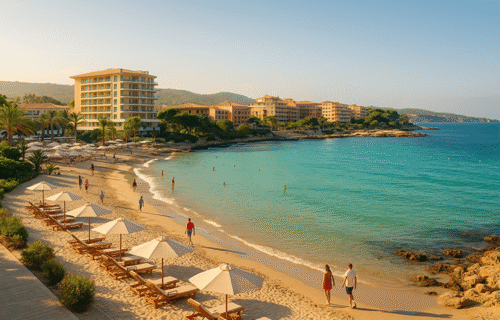Holidaymakers across Europe and beyond are locking in their summer 2025 travel plans earlier than ever, marking a decisive return to structured, confident travel planning. According to new data from REWE Group’s travel division DERTOUR, the average booking now takes place around 135 days before departure—roughly a week earlier than last year and close to a month earlier than before the pandemic.
“Travellers are showing a clear preference for security and availability,” said Markus Orth, CEO of DER Touristik Central Europe. “We’re seeing record levels of early reservations across nearly all key destinations.”
The data shows that this new phase of consumer behaviour is coupled with a shift toward higher-end stays. Roughly one in three travellers now opt for five-star accommodation, while all-inclusive holidays have reached record highs in demand. Turkey, Greece, and Egypt continue to dominate short- and mid-haul choices among European travellers, with Egypt posting a 23 percent rise in bookings compared to last year.
Global research from Booking.com and the Mastercard Economics Institute reinforces these trends. The 2025 reports suggest travellers are prioritising what analysts call “purpose-driven journeys” — trips focused on wellness, cultural authenticity, and sustainability. More than half of respondents said they consider the environmental and social impact of their travels, while interest in wellness retreats and health-focused experiences has surged.
“People are looking for experiences that add value to their lives,” said Natalia Lechman, Senior Travel Analyst at Mastercard. “They’re still prepared to spend, but they want that spending to align with their personal values — wellness, authenticity, or sustainability.”
Mastercard’s latest global data also points to a strong performance across Asia-Pacific, with Tokyo and Osaka ranking among the world’s most dynamic destinations for 2025. Analysts attribute this partly to favourable exchange rates, which continue to attract long-haul visitors from Europe and the Americas.
However, the outlook is not without challenges. Inflationary pressure, higher energy costs, and regional instability remain concerns for travel operators. In parts of southern Europe, hotels and airlines are already reporting capacity constraints as early bookings outpace supply. Analysts warn that such imbalances could lead to rising package prices in the latter half of the year.
Despite these headwinds, optimism prevails. Global booking volumes remain strong, trip lengths are gradually increasing, and the overall mix of travellers appears more balanced. “It’s a return of optimism,” Orth said. “But it’s an informed optimism — people are booking smarter, earlier, and with clearer expectations.”
For travellers, the message is straightforward: spontaneity is giving way to strategy. Those who plan early secure both value and choice. For the industry, the early-booking trend requires sharper forecasting, better inventory control, and an ability to meet a growing demand for quality and purpose — not just price.
Source: REWE Group, Booking.com and Mastercard
